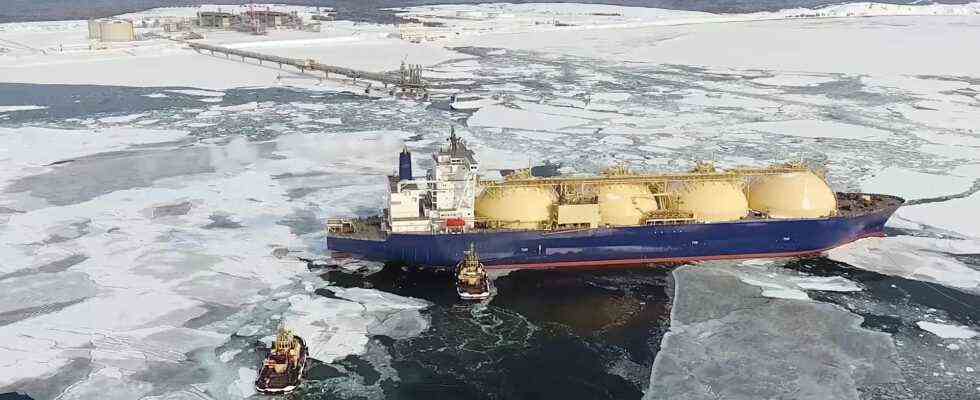Status: 07/16/2021 3:02 p.m.
In the fight against climate change, Greenland has put an end to the oil exploration in its vast area in the Arctic. Despite untapped volumes, no new licenses are issued.
For reasons of climate protection, among other things, Greenland is no longer providing new licenses for the development of oil and gas reserves. “The Greenland government believes that the price of oil exploration is too high,” said the Ministry of Minerals. The decision of June 24th has now been announced.
The regional government in the Danish self-governing area wants to take on responsibility in the fight against the climate crisis. Greenland is the second largest ice store in the world after Antarctica and is therefore a hotspot for global warming. The first destabilization in parts of the ice has already been observed there. The Potsdam Institute for Climate Impact Research (PIK) recently warned that the ice sheet is approaching the point at which the defrosting can no longer be reversed much faster than previously assumed.
“The future does not lie in oil”
In addition to considering the consequences of exploration for the climate and the environment, the decision is also based on economic calculations, said the Greenland government. “The future does not lie in oil. The future belongs to renewable energy and we have a lot more to gain from that.”
“This step is for the sake of our nature, for our fisheries, for the sake of our tourism sector and was also taken to align our business with sustainable potential,” it said. The ministry made no secret of the fact that there are still massive unexplored oil deposits around the largest island on earth.
Large quantities not detected
According to a recent study by the Geological Research Institute of Denmark and Greenland, there are unexplored oil deposits on the west coast of Greenland alone with an estimated value of 18 billion Danish kroner. The researchers also suspect large deposits under the sea floor on the east coast. So far, no oil has been discovered in the waters around the largest island on earth.
The US Geological Survey also suspects large amounts of oil and natural gas there that have not yet been detected. The Naalakkersuisut government, however, takes the position that Greenland is better off if it focuses on sustainable development, said Minister of Natural Resources Naaja H. Nathanielsen. According to the regional government in Nuuk, an economic analysis also shows poor profitability in oil production. The returns are “actually only half as high as expected by oil companies”.
Ban on uranium too?
This is one of the reasons why oil production in Greenland has stalled in recent years, while large oil projects are under way or are being developed in other parts of the Arctic. The decision of the autonomy administration is therefore largely symbolic. Greenpeace described the government decision as “fantastic”. Ten years ago, activists from the environmental protection organization occupied an oil drilling platform in Greenland and demanded that the search be stopped.
Mads Flarup Christensen, Greenpeace Secretary General for the Nordic Region, told the Danish magazine Ingeniøren: “And my understanding is that the licenses that are left have very limited potential.” Greenland has issued four licenses for exploring oil and gas to two small companies. These remain valid as long as they are actively searching.
The “Leiv Eriksson” oil platform was occupied by Greenpeace activists in 2011.
Image: picture alliance / dpa
In line with its election promise, the new regional government is currently also discussing a draft law to ban uranium extraction and mining. Although the island has a strong fishing industry, the Arctic territory is largely dependent on Danish subsidies.

